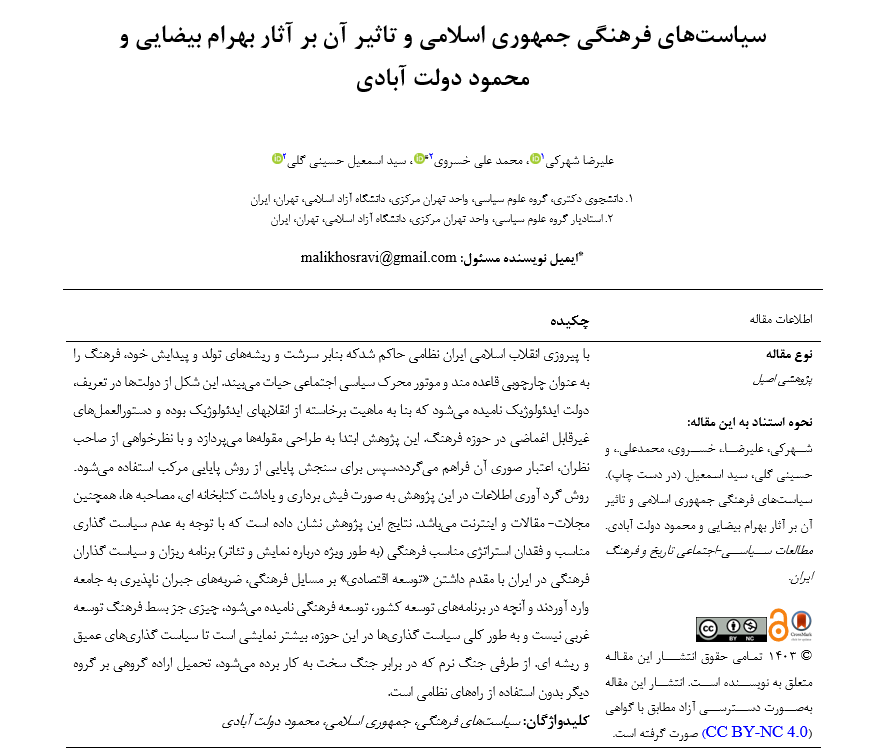Cultural Policies of the Islamic Republic and Their Impact on the Works of Bahram Beyzaie and Mahmoud Dowlatabadi
Keywords:
Cultural policies , Islamic Republic , Mahmoud DowlatabadiAbstract
With the victory of the Islamic Revolution in Iran, a regime was established that, based on its nature and the roots of its emergence, perceives culture as a structured framework and the driving force of socio-political life. This form of government is defined as an ideological state, which, by its nature, arises from ideological revolutions and enforces non-negotiable directives in the cultural domain. In this study, the statistical population was first determined to include the plays of Bahram Beyzaie and Mahmoud Dowlatabadi. This research initially designs categories, and their face validity is established through expert consultation. Subsequently, composite reliability is used to assess reliability. The data collection method in this research includes note-taking from books and library resources, interviews, as well as articles from journals and online sources. The findings of this study indicate that due to the lack of appropriate policymaking and the absence of a suitable cultural strategy—particularly concerning drama and theater—cultural planners and policymakers in Iran, by prioritizing "economic development" over cultural issues, have inflicted irreparable damage on society. What is labeled as "cultural development" in national development programs is, in reality, nothing more than the expansion of Western development culture. Overall, policymaking in this field appears more performative than profound and foundational. Furthermore, the concept of soft warfare, which is employed as an alternative to hard warfare, entails the imposition of one group’s will on another without resorting to military means.
Downloads








